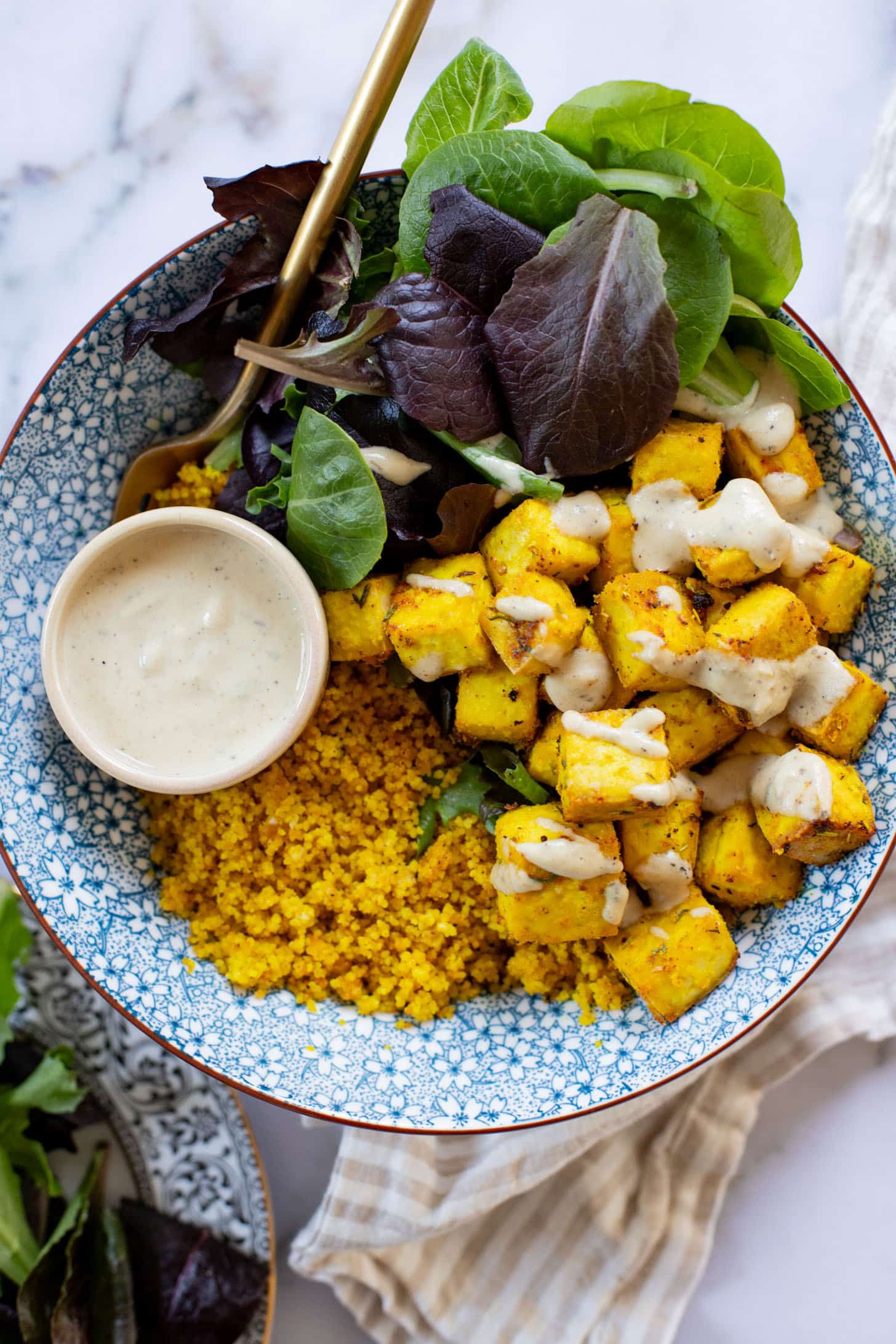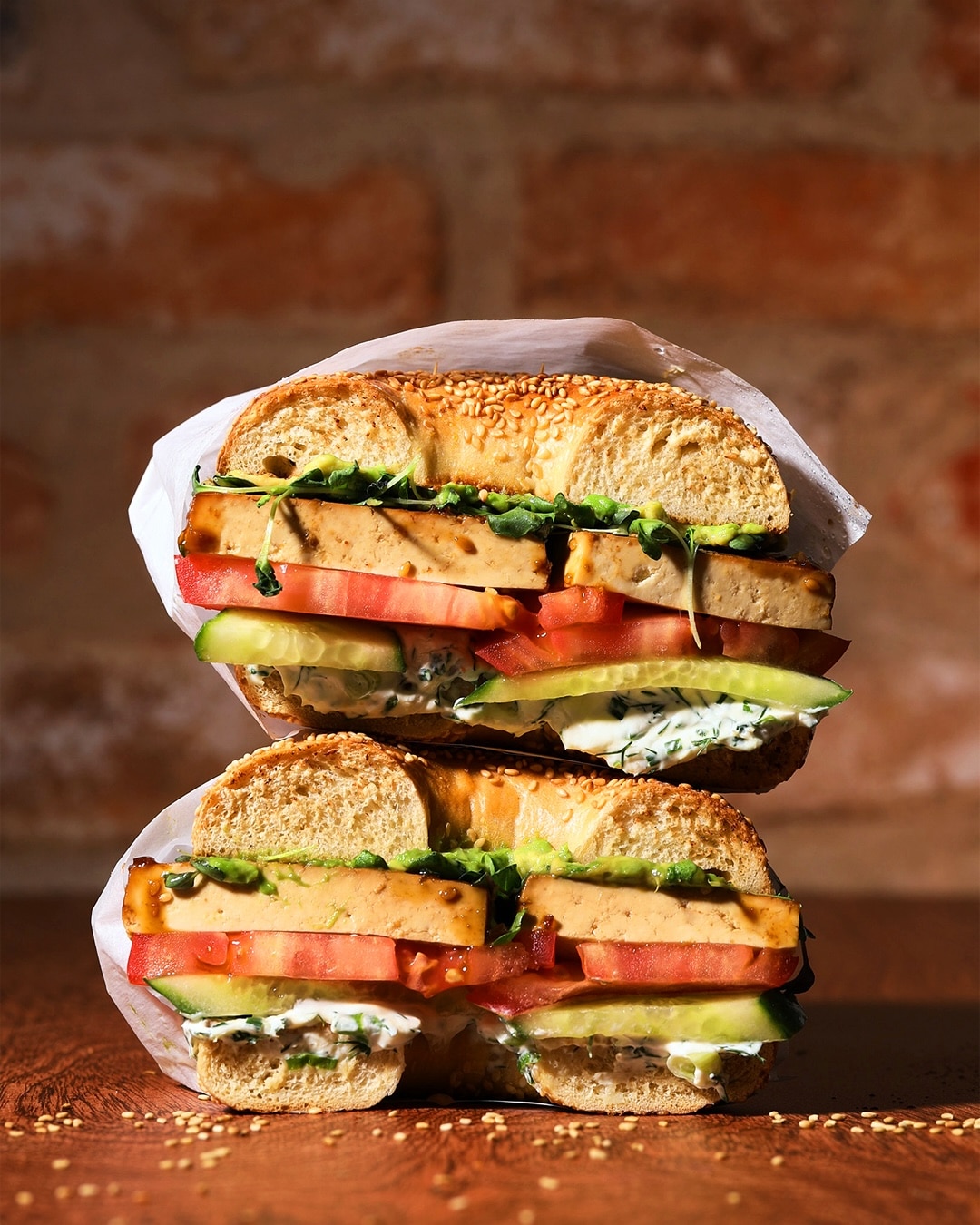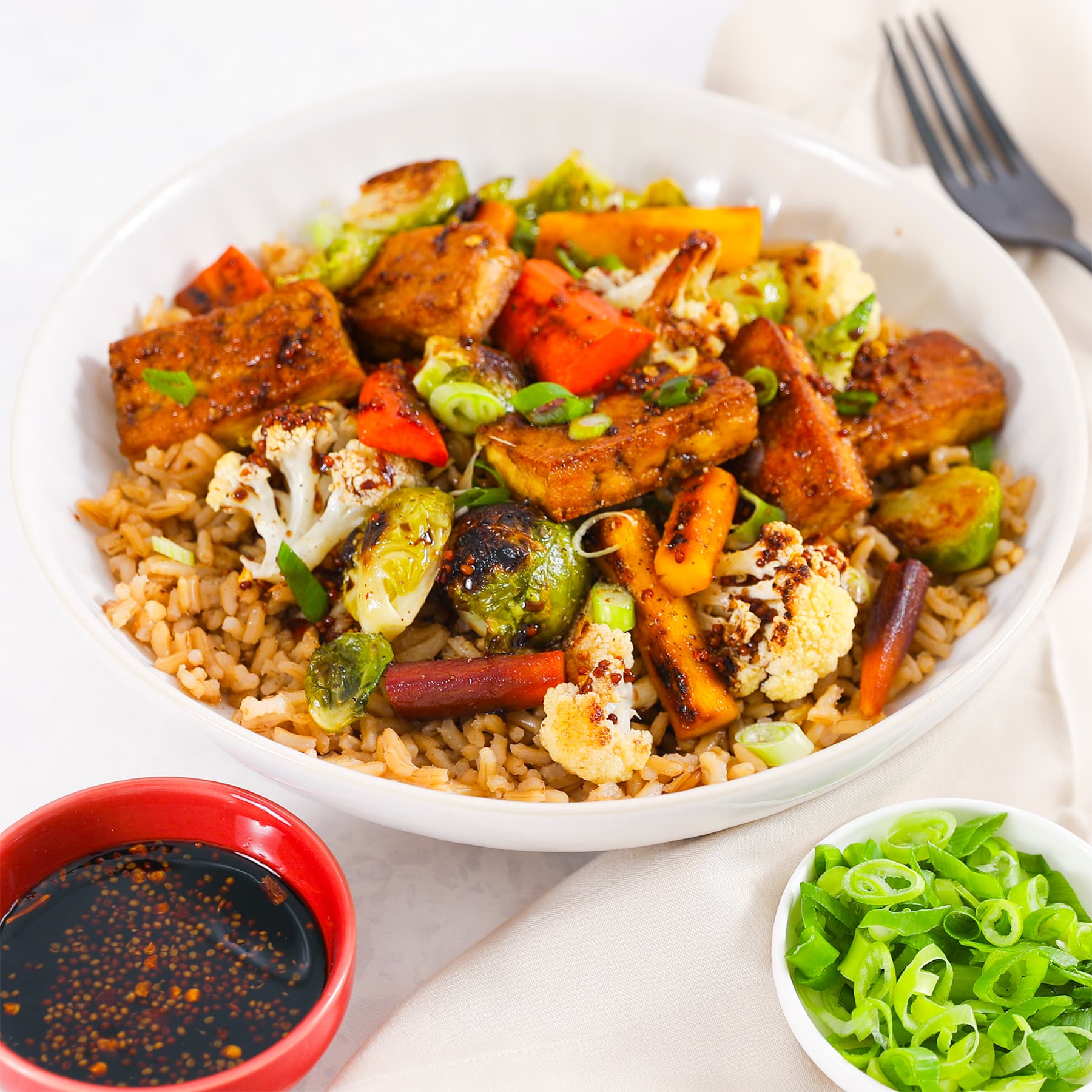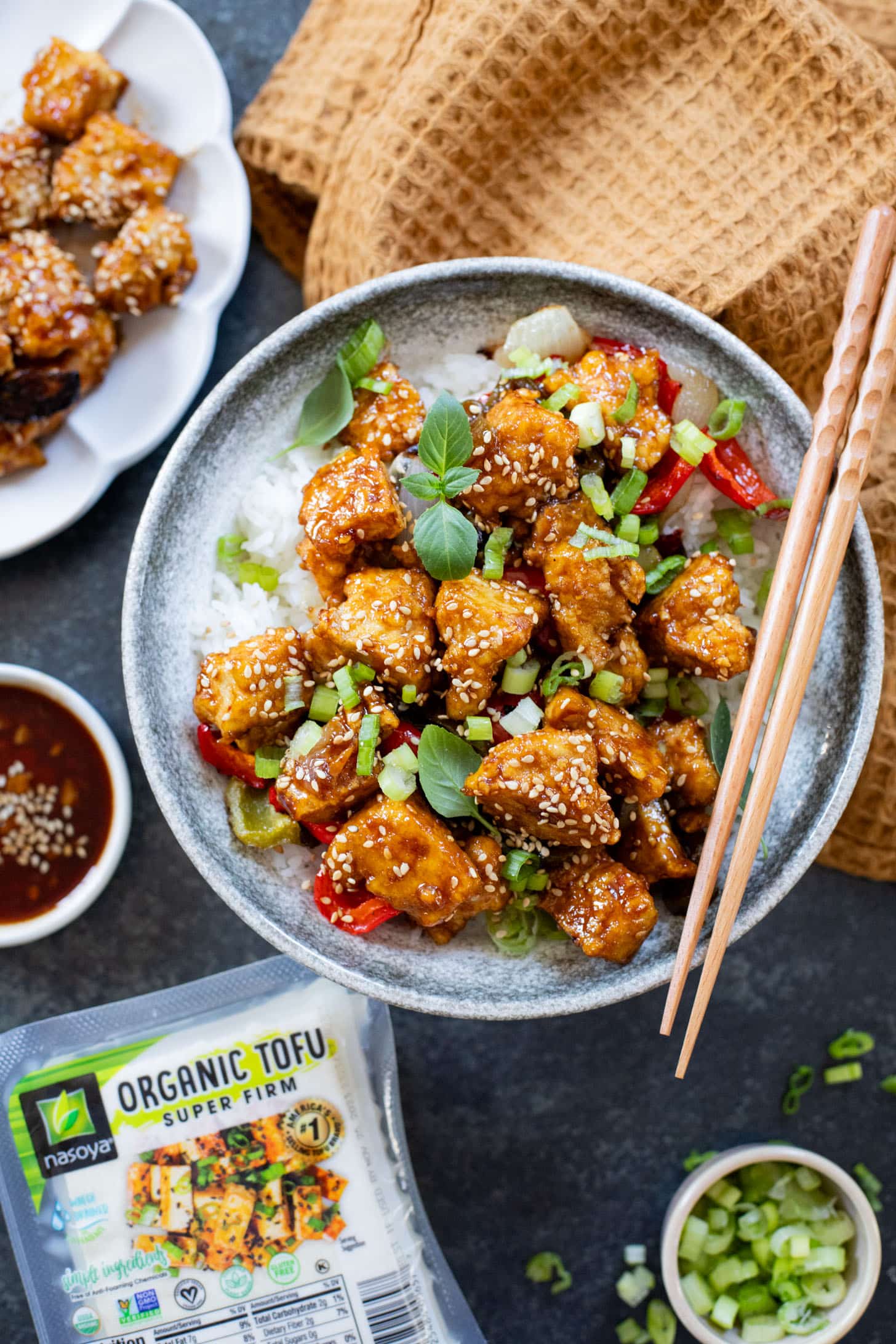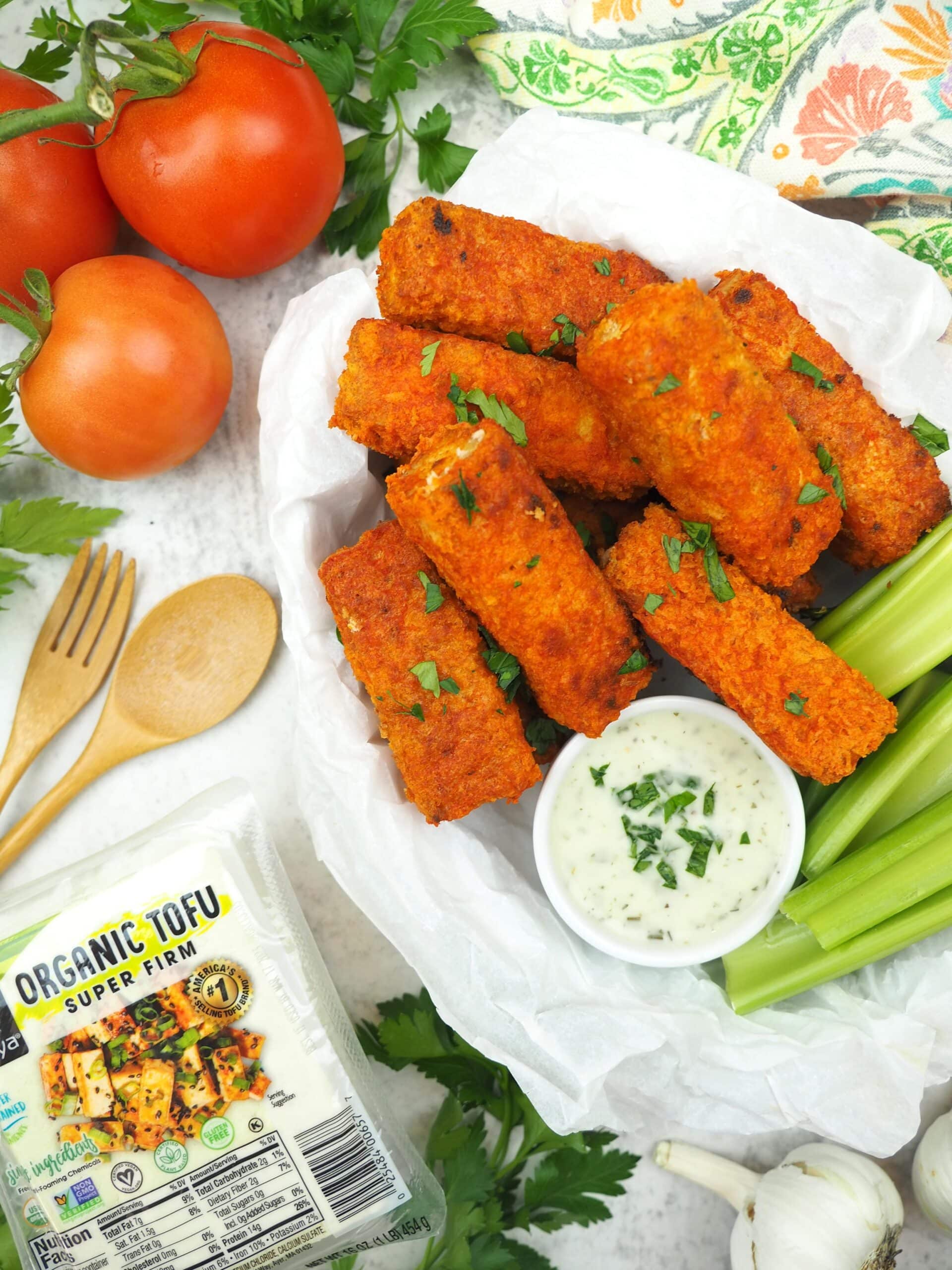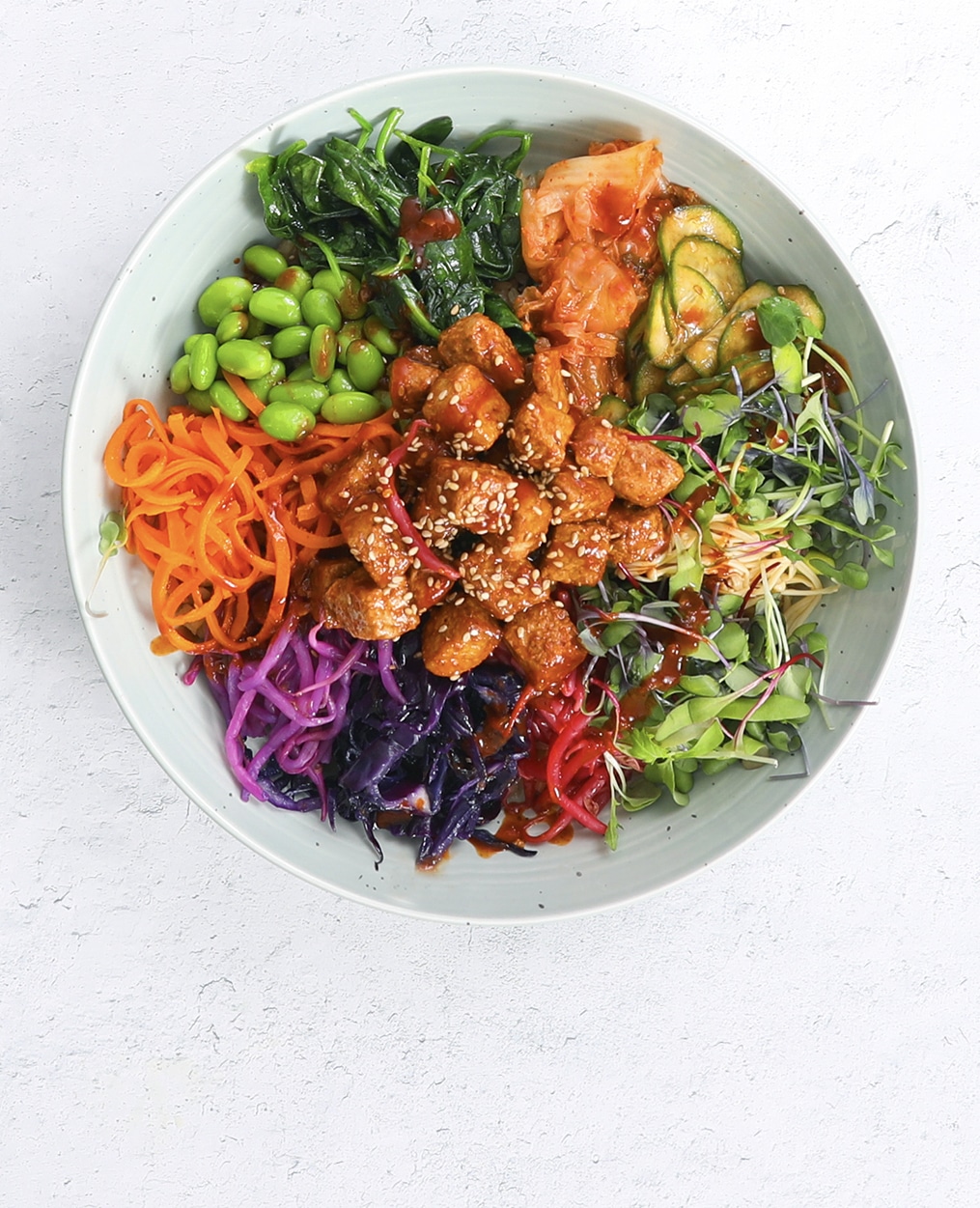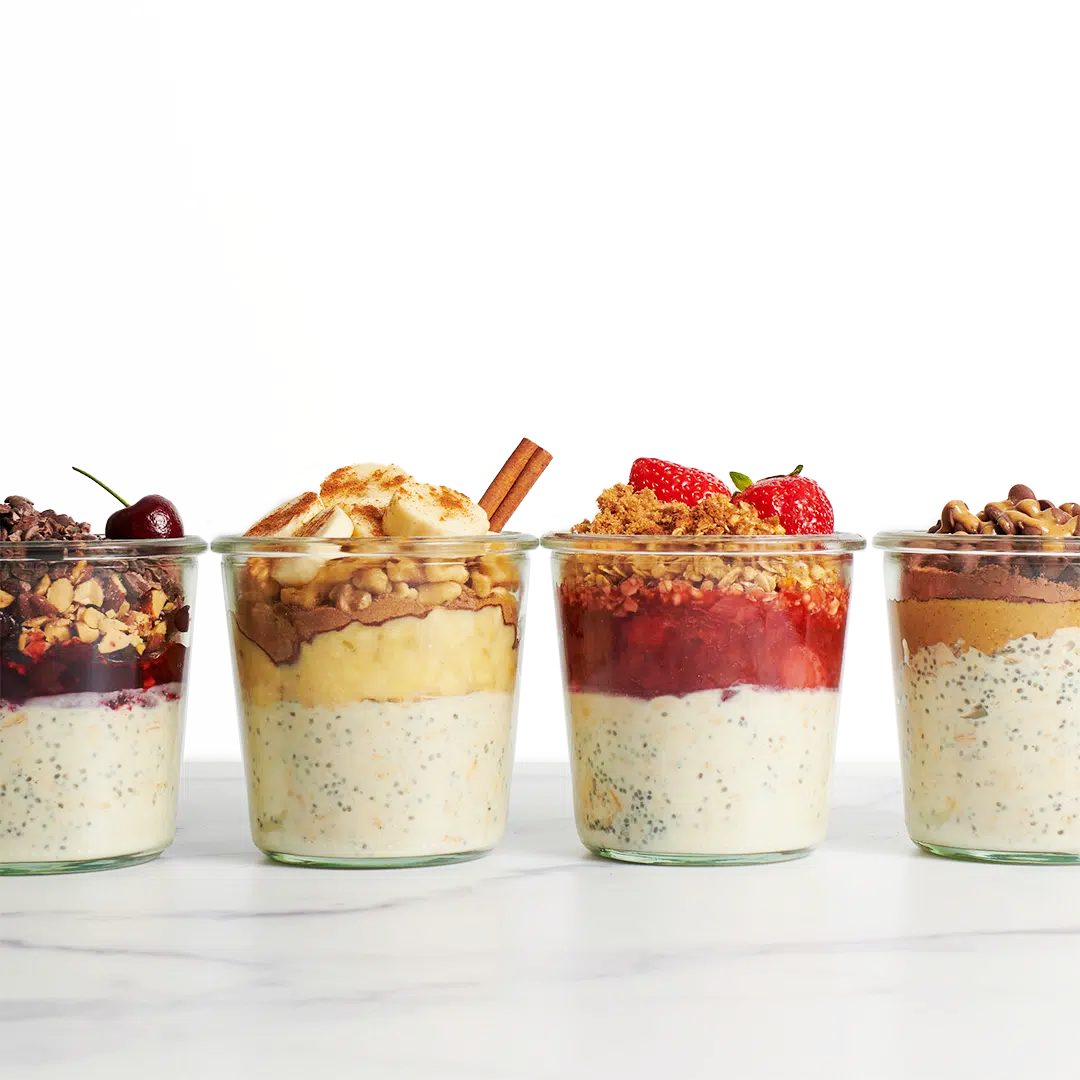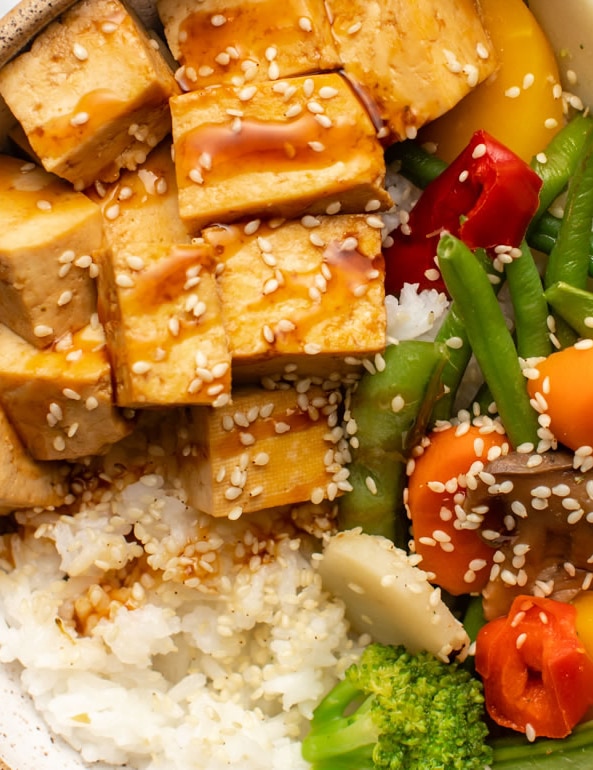Welcome to the Power of 9 movement!
Watch and Enter for a Chance to Win!
Learn more about how tofu delivers the best nutritional benefits to support overall wellness and enter for a chance to win one of the exciting prizes.
Limit one prize per person.
Protein is essential. For women, it’s especially important to be aware of our protein needs and take control of diets that power all we want to do.
There is no one size fits all diet, and there’s a lot of confusion out there too. One of the biggest misconceptions? That you can’t get enough protein from a plant-based diet. That’s simply not true.
Read moreless
For example, tofu is a nutrition powerhouse and features the same 9 essential amino acids animal-based proteins contain. Today, some of the biggest names in sports follow a plant-based diet and show us just how powerful you can be.
When you know more, you are empowered, and that’s what the Power of 9 is all about.
Read on to learn more about how tofu is a true powerhouse ingredient, a complete protein with the power of 9 essential amino acids, that helps support women’s unique nutritional needs.
Meet the ATHLETE Aaliyah Edwards
As a WNBA athlete, whether she’s on or off the court, Aaliyah knows the importance of protein. She also loves sharing her go-to recipes and tips for powering the body with nutritious foods that are sure to be a wellness slam dunk. 2 points to tofu!
Aaliyah also knows all about winning flavor. Her favorite tofu recipe? Nasoya Crispy Soy Garlic Tofu.



Meet the EXPERT Kelly Jones, MS, RD, CSSD, LDN
A sports-focused dietitian, Kelly helps fuel athletes and active individuals with nutrition science, practical advice and delicious plant-forward eating tips. And she’s got a lot to say about tofu’s power no matter what your sport of choice is!
Ask the RD:
Q&A with Kelly Jones
What are the best sources of protein?
The best protein sources will depend on individual dietary preferences and health goals, and there are a variety of proteins that can be part of a nutritious diet. It is important for active individuals in particular to get all of the essential amino acids at least three to four different times each day. When a single food contains all of the essential amino acids itself, in adequate amounts, it is considered a complete protein. All animal proteins – meat, fish, dairy and eggs – are complete, but some plant foods are also complete proteins. Soy, the main ingredient in tofu, is one example of a complete plant protein that has comparable amino acid content when compared to animal proteins, and that I often recommend for those with plant-based or omnivorous eating patterns.
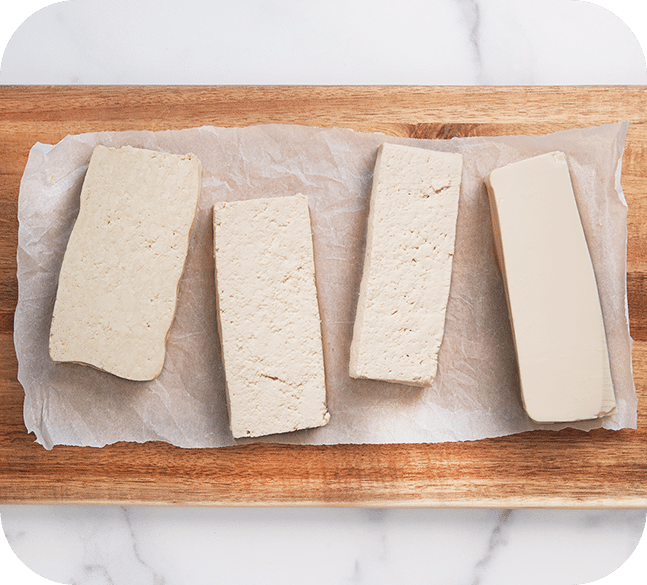
Do women have different protein needs than men?
While many men may need a greater total amount of protein based on body size, a man and woman of the same weight actually have the same protein requirements at baseline. Increased amounts are needed to support varied activity levels as well. However, women may have increased protein needs at baseline during certain periods of life including pregnancy, lactation, perimenopause and menopause.
Read moreless
Baseline protein needs:
The adult RDA, or recommended dietary allowance, for protein is set at 0.8 grams of protein per kilogram of body weight, or 0.36 grams of protein per pound of body weight per day, regardless of gender. However, this amount is set to prevent protein deficiency in American adults. It is not necessarily what is best for optimal health and does not account for the needs of athletes or physically active people.
Protein needs for activity:
Studies suggest that to support optimal health and muscle function in adults, at least 1.2 (0.54 g/lb) per day is best, along with regular exercise, including strength training. For athletes, needs may go up to 2 g/kg (0.91 g/lb) per day or slightly higher during periods of injury when attempting to maintain muscle mass as well as in circumstances with specific body composition goals

Is there such a thing as eating too much soy? I’ve heard tofu contains estrogen, what does that mean?
It’s another common misconception that there are adverse effects associated with eating soy. In fact, the U.S. Food and Drug Administration has cited that consuming 25 grams of soy protein per day can help lower cholesterol levels in individuals who may be at risk for heart disease. Beyond that, other clinical studies have found that consuming up to 50 grams of soy protein per day may also be beneficial for improving risk factors for other health issues such as diabetes, cancer and cardiovascular disease.
Read moreless
Tofu contains plant estrogens, or phytoestrogens, also known as isoflavones that are naturally occurring plant compounds. Plant estrogens are different from the hormone estrogen that our bodies make and they do not convert into the human form of estrogen. This means there is not a risk of tofu contributing to adverse effects associated with high amounts of estrogen in the body.
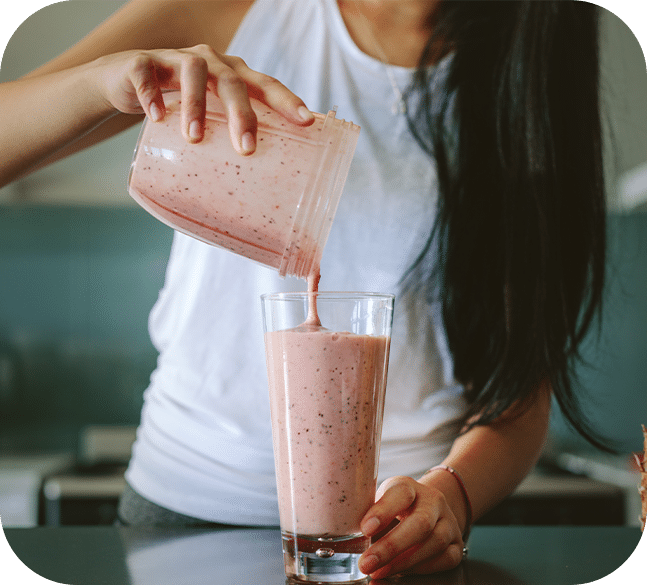
I find it hard to get enough protein in a day. Any tips?
Be sure you’re eating often enough and spreading your protein intake out throughout each meal, and snacks if applicable. Tofu is a versatile plant protein that can be used in a variety of dishes and in unexpected ways – from breakfast to dessert. I find breakfast to be when people are least likely to pack in enough protein, but it’s an important nutrient to include to start your day. If you enjoy a smoothie for breakfast, adding some silken tofu can boost the protein count and for a quick alternative to eggs, try a tofu scramble. Snacks throughout the day are another opportunity to add protein. Cubes of crispy tofu are easy to eat on the go or add to a snack plate with carrots and hummus. You can also use tofu to make a creamy dip that pairs well with veggies sticks or another carbohydrate for energy.
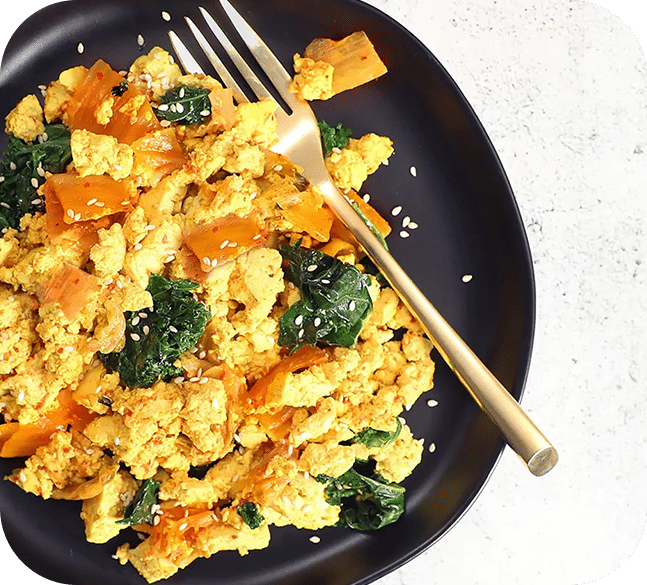
I thought protein was just for building muscle. Do I really need it?
Protein is essential for building and repairing muscle, but it also has many other structural and metabolic benefits. The protein we eat builds other body proteins that are essential for supporting healthy immune responses, metabolic functions, nutrient transport, fluid balance and more. It also provides structure to our organs and tissues in addition to muscle. Protein is also especially important for women, who have unique nutritional needs that vary throughout life stages.

Do you need to eat protein immediately after a workout? Or when should I time my meals when working out?
While many people focus on protein post-workout, the window of time you have may be longer than what was previously thought. For the best responses in muscle protein repair and growth, eat a dose of high quality protein, like tofu, with high quality carbohydrate within 2 hours of completing exercise. It’s important to note that the size and timing of a pre-workout meal may impact the size and timing of a post-workout meal. Recovery doesn’t stop after a post-workout meal or snack though. It’s important to eat moderate doses throughout the day for continuous repair.
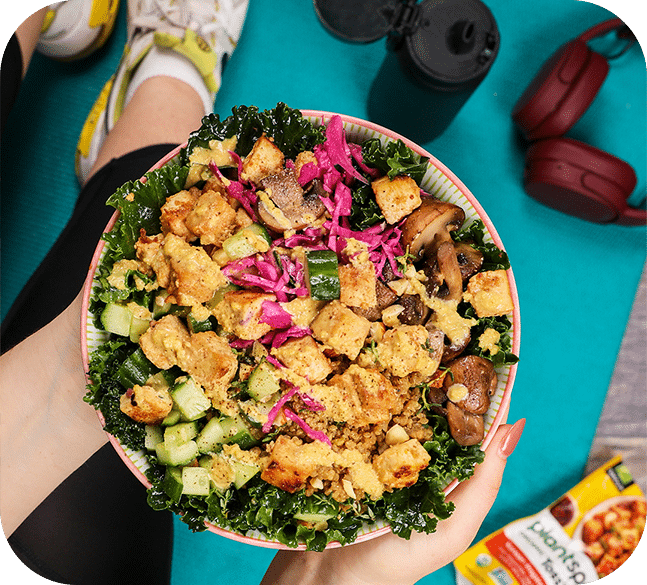
How much protein should I eat in a day?
The recommended amount of protein intake per day varies by person and depends on factors like your weight and fitness goals, as well as stage of life for women. In general, a 140-pound woman should be eating at least 50 grams of protein every day to prevent protein deficiency, but more to support fitness and athletic goals. For athletes, needs may go up to 2 g/kg (0.91 g/lb) per day or slightly higher during periods of injury when attempting to maintain muscle mass as well as in circumstances with specific body composition goals.
Read moreless
The amount of protein needed also changes throughout the different life stages. Pregnancy, lactation, perimenopause and menopause require more protein than the RDA at baseline. Older individuals also benefit from amounts of protein higher than the RDA to support and maintain strong muscle mass and function.
Life Stages:
Women’s protein needs increase during certain life stages, such as pregnancy, breastfeeding and even during perimenopause and menopause.
During pregnancy, research suggests women consume 1.2 – 1.52 g/kg per day of protein, with the lower range supporting the early pregnancy and the higher range best for the third trimester. This is to support both fetal development and other physiological changes.
During lactation, if exclusively breastfeeding an infant, needs may be as high as 1.5-1.8g/kg per day (.68-.82 g/lb).
While more research is needed on optimal protein intake for perimenopause and menopause, recent studies suggest 1.2-1.6 g/kg (.54-.73 g/lb) per day to prevent excess loss of muscle mass and muscle function.
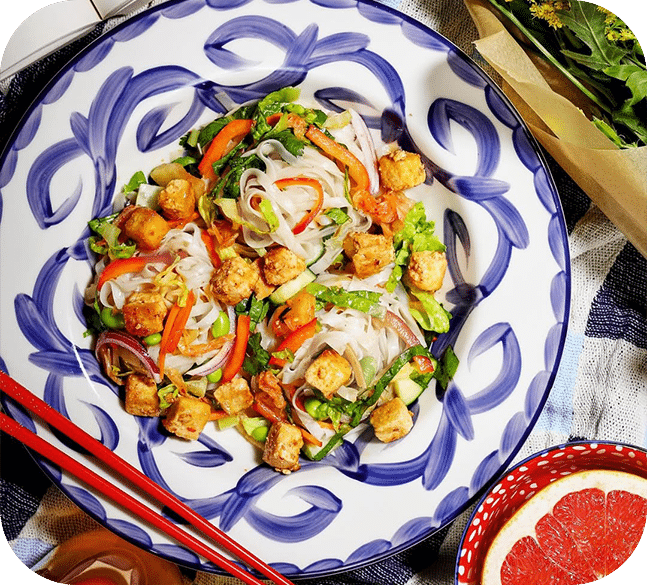
The content provided is not intended to be medical advice. It’s important to tailor nutrition and protein intake to individual needs rather than relying solely on general guidelines. Consulting with your own healthcare provider or a registered dietitian can help determine the optimal protein intake for your specific situation.
References:
Read moreless
- Phillips SM, Chevalier S, Leidy HJ. Protein “requirements” beyond the RDA: implications for optimizing health. Appl Physiol Nutr Metab. 2016 May;41(5):565-72.
- Jäger R, et al. International Society of Sports Nutrition Position Stand: protein and exercise. J Int Soc Sports Nutr. 2017 Jun 20;14:20.
- Nunes EA, Colenso-Semple L, McKellar SR, Yau T, Ali MU, Fitzpatrick-Lewis D, Sherifali D, Gaudichon C, Tomé D, Atherton PJ, Robles MC, Naranjo-Modad S, Braun M, Landi F, Phillips SM. Systematic review and meta-analysis of protein intake to support muscle mass and function in healthy adults. J Cachexia Sarcopenia Muscle. 2022 Apr;13(2):795-810.
- Stephens TV, Payne M, Ball RO, Pencharz PB, Elango R. Protein requirements of healthy pregnant women during early and late gestation are higher than current recommendations. J Nutr. 2015 Jan;145(1):73-8.
- Elango R, Ball RO. Protein and Amino Acid Requirements during Pregnancy. Adv Nutr. 2016 Jul 15;7(4):839S-44S.
- Weiler M, Hertzler SR, Dvoretskiy S. Is It Time to Reconsider the U.S. Recommendations for Dietary Protein and Amino Acid Intake? Nutrients. 2023 Feb 6;15(4):838.
- IOM Consensus Study Report: DRIs for Energy, Carbohydrates, Fiber, Fat, Fatty Acids, Cholesterol, Protein, and Amino Acids (2005). National Academies Press. page 659.
- Rasmussen B, Ennis M, Pencharz P, Ball R, Courtney-martin G, Elango R. Protein Requirements of Healthy Lactating Women Are Higher Than the Current Recommendations. Curr Dev Nutr. 2020 May 29;4(Suppl 2):653.
- Silva TR, Oppermann K, Reis FM, Spritzer PM. Nutrition in Menopausal Women: A Narrative Review. Nutrients. 2021 Jun 23;13(7):2149.
- Gregorio L, Brindisi J, Kleppinger A, Sullivan R, Mangano KM, Bihuniak JD, Kenny AM, Kerstetter JE, Insogna KL. Adequate dietary protein is associated with better physical performance among post-menopausal women 60-90 years. J Nutr Health Aging. 2014;18(2):155-60.
- Kerksick CM, Arent S, Schoenfeld BJ, Stout JR, Campbell B, Wilborn CD, Taylor L, Kalman D, Smith-Ryan AE, Kreider RB, Willoughby D, Arciero PJ, VanDusseldorp TA, Ormsbee MJ, Wildman R, Greenwood M, Ziegenfuss TN, Aragon AA, Antonio J. International society of sports nutrition position stand: nutrient timing. J Int Soc Sports Nutr. 2017 Aug 29;14:33.
- Lancha AH Jr, Zanella R Jr, Tanabe SG, Andriamihaja M, Blachier F. Dietary protein supplementation in the elderly for limiting muscle mass loss. Amino Acids. 2017 Jan;49(1):33-47. (1.2-1.6 g/kg to combat anabolic resistance)
- Baum JI, Kim IY, Wolfe RR. Protein Consumption and the Elderly: What Is the Optimal Level of Intake? Nutrients. 2016 Jun 8;8(6):359. (experts recommend 1.2-2.0 g/kg per day)
Tofu FAQs
I’m trying to eat clean, minimally processed foods. What is tofu made of?
Tofu is one of the simplest sources of plant-based protein, made from just three main ingredients – soy beans, water and salt. The art of making tofu dates back nearly 2,000 years. Nasoya tofu is organic and minimally processed, made from high-quality organic soybeans. We extract soymilk from the soybeans and then press the resulting curds into solid blocks in a process similar to cheesemaking.
I’ve heard that tofu is only for vegetarians or vegans and that it is bland, is that true?
Absolutely not! While it may seem intimidating, tofu is a versatile and delicious source of plant-based protein that can be enjoyed by everyone. Whether you’re interested in plant-based eating or just looking to enjoy more variety in your diet, tofu is a great protein option. Tofu has a neutral and subtle flavor, making it a perfect blank canvas for your favorite flavors. Tofu absorbs the flavors you incorporate it with, so adding bold herbs, seasonings or sauces can take tofu to the next level to create a delicious savory or even sweet dish.
Why is tofu a good source of plant-based protein?
Tofu is an excellent source of plant-based protein, containing all 9 essential amino acids that support building muscle, boosting immunity and help breaking down food.
Our bodies need a total of 20 amino acids to function, but only 9 of them are considered “essential.” Our bodies can make nonessential amino acids on their own, but not essential amino acids so those need to come from food intake. These essential amino acids include: Histidine, Isoleucine, Leucine, Lysine, Methionine, Phenylalanine, Threonine, Tryptophan and Valine.
All animal proteins – meat, fish, dairy and eggs – contain the 9 essential amino acids making them “complete proteins,” but there are also plant-based foods that are also complete like soy, making tofu a perfect example.
The body does not know the difference between an animal and a plant protein. So, as long as a protein contains the 9 essential amino acids, the body receives and responds the same way, so women can feel confident in choosing tofu as a plant-based protein source.
Is all soy genetically modified?
No, not all soy is genetically modified. In fact, Nasoya’s tofu products are all made from organic, non-GMO soybeans.
What are some sample tofu recipes to help me get enough protein in my day?
Thanks to its versatility and convenience, tofu can be easily incorporated to every meal of the day – from breakfast to dessert. Silken tofu can be used to make delicious (and nutrient-packed!) smoothies or overnight oats, while Extra Firm or Super Firm tofu varieties are great in a stir fry or rice bowl. You can even use tofu as the main ingredient in a sandwich, pasta dish or tacos. For more recipe inspiration, ask Tofie, Nasoya’s AI tofu chat bot! You can ask Tofie for recipe ideas based on what ingredients you have at home or which type of cuisine you’d like to try!
What are the different types of tofu, and which one should I use?
Nasoya offers several varieties of tofu – Silken, Firm, Extra Firm and Super Firm. The difference between each type of tofu lies primarily in the water content and texture. Silken tofu has the softest texture and is best used for sauces, creamy desserts, dips, smoothies and more. Firm tofu is very versatile and can be used in anything from soups to baked goods. Extra Firm tofu is one of the most popular varieties and is often used in tofu nuggets, noodle dishes or rice bowls. Super Firm tofu is dense and has the lowest water content, so it holds its shape well and is best for grilling, frying, stir-frying, and sandwiches.

Enter for a chance to Win!
Enter your email after watching the video above for a chance to win a number of prizes to help level up your wellness goals!

25 lucky winners will receive a $25.00 Instacart gift card

10 lucky winners will receive a gift box with a custom Power of 9 jersey, free Nasoya tofu product coupons and special Nasoya branded swag

1 lucky grand prize winner will receive a one-year gym membership delivered in the form of e-gift cards.
Up to a $1,000 value.
Winners will be drawn on a rolling basis through February 3, 2025.
Official Rules
High Protein Recipes
NO PURCHASE NECESSARY. Void where prohibited. The Nasoya Power of 9 Sweepstakes is sponsored by Pulmuone Foods USA, d/b/a Nasoya Foods USA. Open to legal residents of the 50 U.S. & D.C., 18+. Begins at 12:00 p.m. ET on 1/6/25 & ends 11:59 p.m. ET on 2/3/25. For complete details and official rules, visit https://www.//nasoya.com/nasoya-power-of-9-sweepstakes-official-rules/
Join Our
Plant-Forward Community
Sign up to receive access to our delicious recipes, news, giveaways and more!

